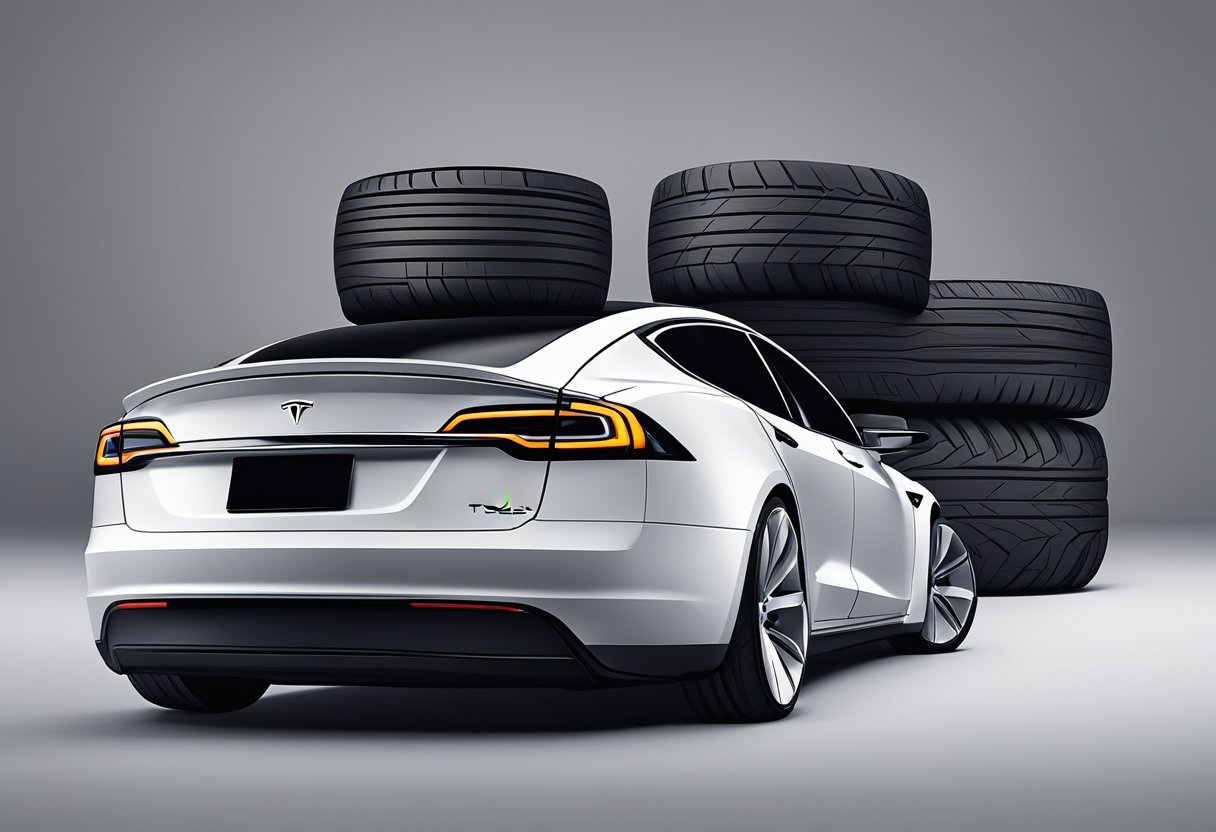Owners of Tesla vehicles often find that replacing the tires can come with a hefty price tag, a reality that may catch some by surprise. The cost of Tesla tires is influenced by several factors unique to electric vehicles, particularly the specialized design required to accommodate the cars’ distinctive performance characteristics. Your Tesla’s tires are not just ordinary tires; they are an integral component engineered to match the vehicle’s high-performance capabilities.

The substantial weight of Tesla’s battery packs contributes to the tire’s quick wear and substantial burden, requiring tires that can withstand significant load compared to those fitted on conventional vehicles. Coupled with the instant torque characteristic of electric motors, Tesla tires must be able to grip the road effectively under sudden acceleration, which demands a more robust and durable construction. This need for enhanced performance characteristics inherently increases manufacturing complexities and costs.
Moreover, Tesla’s focus on a quiet ride necessitates the incorporation of noise-dampening technology within the tires. Engineers have designed Tesla-specific tires that work to reduce road noise, adding sound-deadening foam without sacrificing handling. This technological sophistication within Tesla tires is another contributing factor to their elevated price point, reflecting the harmony between cutting-edge innovation and the luxury status of the brand.
Factors Influencing the Cost of Tesla Tires
Tesla tires are more than just rubber and tread; their cost is a reflection of specialized materials, advanced technology, and design considerations tailored to the unique demands of electric vehicles.
Premium Materials and Design
Tesla partners with leading tire manufacturers like Michelin, Continental, Pirelli, Bridgestone, and Hankook to ensure that your Tesla is equipped with high-performance tires. These tires are made using premium materials that are engineered for durability and performance to match the brand’s high standards. A Tesla is no ordinary car, and its tires are designed to reflect that prestige.
Advanced Tire Technologies
Your Tesla’s tires incorporate advanced technologies such as a layer of foam within the tire. This foam is used to reduce noise, enhancing the already quiet experience of driving an electric vehicle. Additionally, state-of-the-art tire pressure monitoring systems enable you to maintain optimal tire pressure, ensuring both safety and efficiency.
Specialization for Electric Vehicles
Electric cars, including your Tesla, produce instant torque that can lead to quicker tire wear. The tires are thus designed to handle the power and quick acceleration of electric motors. The unique design and specialized requirements for EV tires contribute to the higher tire cost – they are not just about gripping the road; they must also cope with the substantial weight and dynamic forces of electric vehicles.
Performance and Safety Benefits

When it comes to Tesla tires, your driving experience is enhanced not only through higher performance standards but also through the built-in safety features. These tires are specifically designed for electric vehicles to meet the demands of both power and safety.
Optimized Grip and Handling
- Performance: With a dynamic structure tailored for electric vehicles (EVs), Tesla tires offer optimal grip for acceleration and precise handling that’s essential for high-performance driving.
- Safety: This grip translates into enhanced stability and steering responsiveness, allowing for safer navigation of road conditions.
Extended Tire Longevity
- Mileage: Despite the heavier weight of EVs, Tesla tires are built to withstand this, which contributes to reduced tire wear and a longer lifespan.
- Benefits: Over time, this means less frequent replacements and could lead to better cost efficiency despite the higher upfront cost.
Enhanced Ride Comfort
- Comfort: An integral part of Tesla’s tire design includes noise-reducing foam inside the tire, ensuring a quieter ride.
- Foam: The foam also helps absorb road vibrations, providing an improvement in overall ride comfort that makes longer trips more pleasurable.
Cost Analysis of Tesla Tires
When evaluating the cost of Tesla tires, you’ll uncover specifics tied to model variations, lifespan investments, and how their pricing contrasts with tires from traditional vehicles.
Tesla Models and Tire Pricing
Tesla’s lineup including the Model S, Model 3, Model X, and Model Y, all feature different tire sizes and requirements that influence pricing. For instance, the high-performance Model S may be fitted with 21-inch rims, demanding a tire capable of handling its power and weight. Here’s a simplified pricing structure based on the models:
- Model S: Starting from $280 per tire
- Model 3: Starting from $230 per tire
- Model X: Starting from $350 per tire
- Model Y: Starting from $240 per tire
Prices may vary based on specifications and regional differences in tire costs.
Lifetime Cost and Maintenance
Regular maintenance such as tire rotation, inspections, and appropriate tire pressure adjustments can extend the life of your Tesla tires, helping amortize costs over more miles. While initial costs can be higher, efficient maintenance often leads to cost savings in the long run. Replacement generally aligns with industry standards at around 20,000-25,000 miles for high-performance versions and up to 40,000 miles for standard models.
Comparing Cost with Traditional Vehicle Tires
Comparisons with traditional vehicle tires show that Tesla tires are tailored for the heavier weight of electric vehicles and their instant torque characteristics. Here is how Tesla tire costs stack up against traditional vehicles:
- Cost of Tesla tires: Typically higher due to advanced features and performance requirements.
- Maintenance: Similar processes like rotations and pressure checks, but alignments may be more frequent due to the weight distribution of electric vehicles.
- Efficiency: While electrical vehicles save on fuel costs, tire efficiency is crucial to maintaining range performance.
Remember, the price of tires should always be considered in relation to the overall vehicle cost and operational savings on electricity versus fuel.

